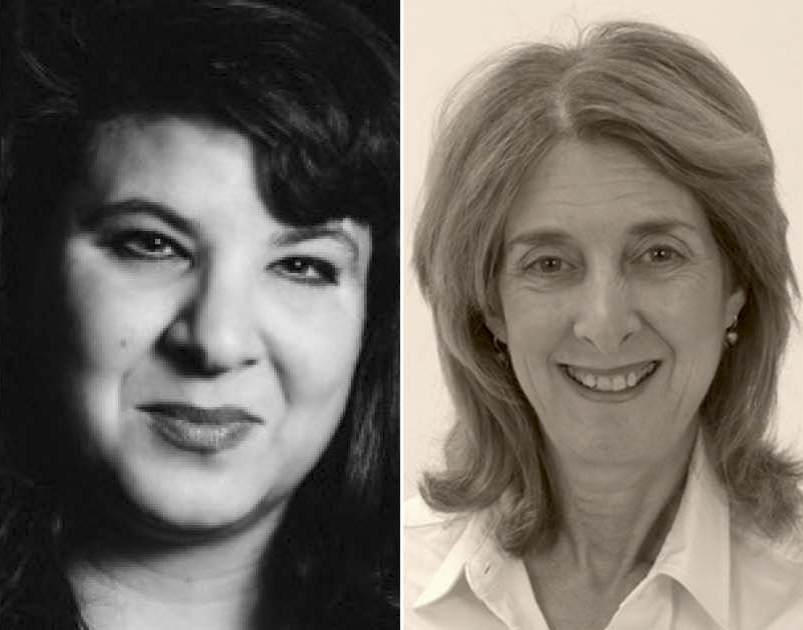Most, if not all, religions have some sort of scripture that says to treat others with kindness, or to welcome others with loving arms. This is also the case for people of different religions when engaging in interfaith dialogue.

Atiya Aftab and Sheryl Olitzky co-founded the Sisterhood of Salaam Shalom in 2010 to build trust, respect and relationships between Muslim and Jewish women.
They will give their joint lecture, titled “Being the Change – A Leap of Faith,” at 2 p.m. today in the Hall of Philosophy to continue Week Eight of the Interfaith Lecture Series, “New Profiles in Courage.”
“There’s total confidence that by sharing my story, and Atiya sharing her story, and the many stories of the Sisterhood of Salaam Shalom, we will be changing the level of ignorance,” Olitzky said. “We will be shedding new light on understanding and through that we will be changing the course.”
Their original mission is reflected in the work Sisterhood of Salaam Shalom currently does: “Having these conversations that are often difficult conversations about how people who seemingly may look or believe differently. … We have much more in common as the cliche goes,” Aftab said. “Despite whatever differences there are, we could work together for good.”
Olitzky, a Jewish woman, started her journey to interfaith discussion and support in what she calls an “a-ha” moment. She led a group of about 40 people to visit Auschwitz in Poland, and she asked the tour guide why everyone there looked the same — no people of color, no one wearing a headcovering and no one looking like they might be of a different race.
As they were about to park the bus, the guide said to her, “You’re right my dear. Poland is for the Poles. And by the way, you talked about a headcovering. If you’re referring to a headscarf, we don’t have a Muslim problem here because they’re not welcome.”
This was her “a-ha” moment, she said. She realized, while sitting at one of the “worst places on Earth,” that she could try to overcome these feelings of hate and ensure history doesn’t repeat itself.
Aftab, a Muslim woman, said her moment was different. Olitzky had reached out to her several times, wanting to discuss her desire to join forces through their respective faiths.
“I agreed to meet her and, to me, this shows the power of personality and the power of human relationships, that when we met for the first time, there was an instantaneous connection,” Aftab said.
Olitzky said she knew she had to do something to make sure hate directed at the Jews did not also happen to Muslims. She didn’t know very many Muslims in her community, and the few she did know, she did not have relationships with.
“Imagine what we could do with a small group of Muslim and Jewish women,” Olitzky said, “to really get to know each other and to work at changing that course of hate?”
Neither of them anticipated the size their organization would become. They started with 12 women; in 2022, they’re more than 1,000 strong.
Aftab said she didn’t initially feel the need for interfaith dialogue. She was on the board of her mosque for many years and felt the conversations were only surface-level effective.
“Leaders of the different religions would come in and talk about religion in a very academic, theological or generic fashion,” Aftab said. “I didn’t see the connection to the people who are in the room listening.”
Atfab and Olitzky wanted to regularly create experiences for people to join together, and cultivate a safe place to do so.
“They can have conversations that are meaningful to interfaith, asking difficult and awkward questions,” Aftab said. “Those are not necessarily things that can take place in an institutional setting.”
Olitzky said there are three things that can change the way people view each other. First: Bring people who are different together in order to create a shared objective.
“Everyone has some difference, even if you call yourself within the same religion,” Aftab said. “These are opportunities to have conversations that are challenging, and people can if they want to engage in that.”
Second, Aftab said, is to meet in safe places and meet in each other’s homes. Third, the work must be consistent. The Sisterhood of Salaam Shalom chapters have met every month or every six weeks, for almost 13 years.
“If you do all three of those things, those two groups will view each other with trust and respect and (care),” Olitzky said. “The way they view each other is how they will view each other’s groups that they’re a part of.”
When people commit to creating relationships with those of different faiths, it helps create positive change. For Sisterhood of Salaam Shalom, Olitzksy said that commitment can affect a Jewish woman’s view of a Muslim woman’s view, and vice versa.
“It’s not hard to be involved in this work,” Olitzky said. “It takes, in our case, one Muslim woman and one Jewish woman to change the entire world.”




